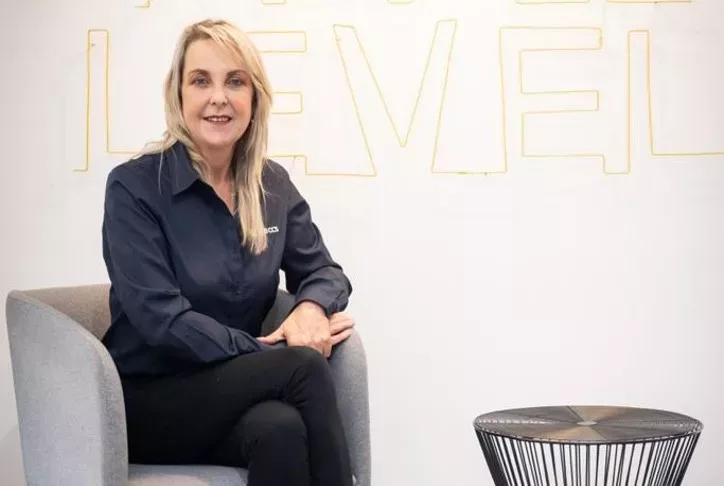7 mins read
Women Are Reshaping the Corporate Landscape

RIB Software understands the importance of fairness and equality in the South African workforce. Martella Barnard’s journey to Senior Implementation and Training Consultant is evidence of its commitment to providing women with the opportunities to forge their futures and shatter the proverbial glass ceiling.
Women in South Africa have historically faced systemic discrimination and limited access to opportunities in the workplace, hindering participation, progression, and women empowerment in general. However, female empowerment has undergone significant changes over the past few decades. This has brought about increased opportunities and an emphasis on equality.
Women empowerment in the workplace is not just about equal opportunities. It’s also about harnessing the full potential of nearly half the global population to create a better, more equitable, and prosperous society.
Martella Barnard’s journey to Senior Implementation and Training Consultant at RIB Software – a preferred supplier of specialised software to the engineering and construction industry for 40 years – bears testament to this company’s commitment to creating an equitable and transparent environment for all of its employees.
The expertise of an industry veteran
Boasting over 35 years of experience in the construction industry, and qualifications in Accounting Tax and Business Analysis from UNISA, Martella began her career as a data capturer. Here, she garnered an aptitude for costing, accounts and payroll.
“Having spent most of my time working with construction software programs, I became fascinated with how software can assist in streamlining revenue and costs. And this has been the guiding force that has led me to where I am today,” she explains.
Rising to the challenges
Martella is responsible for managing new clients, while also overseeing the various projects and tasks that she is appointed to. And though this can often become overwhelming, owing to the strict requirements and deadlines of the job, she manages the pressure well. She does this by delegating tasks and responsibilities between her colleagues and dividing projects into smaller, more manageable tasks.
Communication is a common challenge in the construction industry. As the cornerstone of business success, she adds that leaders, managers and upper-level employees must have strong communication skills and encourage open communication between colleagues and clients.
“Apart from effective communication, motivation plays an important role in the successful implementation of software solutions, and when clients have confidence in the solutions provided by a supplier, they are more engaged and productive,” explains Martella.
Providing colleagues and clients with positive feedback is instrumental in motivating them. However, Martella believes that having a system in place for requesting and distributing feedback holds equal significance.
She considers client feedback to be invaluable. This aids the company in identifying its strengths and weaknesses. It can also form the foundation from which a company can drive professional development and promotions among its employees.
Martella believes that, even in a leadership role, there is no shame in asking for help when it is needed. Remaining motivated and confident in challenging situations is often the key to a successful and meaningful career.
“I reduce my stress levels by exercising and partaking in other relaxing activities. If only for a few minutes, I notice that this helps me to stay composed and attentive, and is an approach that I encourage in my team as well,” she says.
The importance of women empowerment in construction
Speaking on the evolution of women empowerment and their roles in the construction industry, Martella believes that women bring a distinctly analytical perspective to critical facets such as problem-solving, information evaluation and decision-making. These, she says, are crucial in ensuring a safe and efficient work environment.
While attracting female participation in the construction industry is essential, it’s equally as important to retain them. The Construction Industry Council and other industry bodies suggest that although female employment numbers in the industry are substantial, a significant portion vacate their positions within five years. To address this, Martella suggests five key criteria that need to be addressed:
Rooting out discrimination
Martella believes that women in the industry should be treated the same as their male counterparts. She also says that the industry at large should ensure that it takes a hard stance against sexism, discrimination, and bullying in any form. Overall, she suggests that it’s their responsibility to ensure that their employee’s basic needs are catered for, regardless of gender.
Balancing careers and family responsibilities
As an industry typically characterised by long hours and time away from home, organisations must assist women in finding a balance between their work and their family commitments. These could include on-site childcare or flexible work arrangements.
Supporting career advancement
A recent study by MIT found that female employees were 14% less likely to be promoted than their male counterparts. Martella urges that promotions be awarded based on an employee’s skills and results. She suggests that organisations should cultivate a mentoring culture to aid in supporting women empowerment and career development and retention.
Collaborative partnerships
The industry could also collaborate with organisations, NGOs, and government bodies. This will collectively address gender disparities and promote gender equality and women empowerment in the construction sector.
Experience can add value
Given the limited number of older women in the industry, their experience is invaluable. Finding ways to retain them is important. One approach could involve flexible working schedules. These can serve as mentors for the next generation of women entering the industry.
It’s time to break ground and change the status quo
Despite the challenges that women may encounter in the historically male-dominated construction industry, Martella urges women to remain steadfast in their pursuit of a career. They can showcase their worth in the construction industry.
“There will be hurdles along the way. But remaining true to yourself and tackling all tasks with energy and determination will pave your pathway to success,” she concludes.
Most Recent
7 mins read
3 mins read
5 mins read
5 mins read

Ebook











